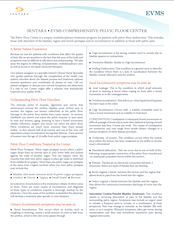Uterine fibroids are benign tumors that are made up of the muscle and connective tissue from the muscle of the uterus. Fibroids may be a single mass or in groups. They range in size from 1 mm to more than 20 cm (8 inches) in diameter. They may grow in the wall of the uterus, extend into the cavity (inside of the uterus), or toward the outside surface of the uterus. In some cases they grow on stalks connecting them to the uterus.
What causes uterine fibroids?
The causes of fibroids are well understood. They mostly effect women of child bearing age. We do believe that genetics (family history) play some part in the growth of fibroids. They are diagnosed in black women 2-3 times more frequently than in white women but the exact reason is not clear.
Are fibroids cancer?
Suspected fibroids are rarely caner. Fibroids are benign tumors of the muscle cells in the uterus. The risk of fibroids being uterine muscle cancer known as Leiomyosacroma is 0.23 %, or 2-3 cases per 1000 women with fibroids. Patients who have rapid growth of uterine fibroids, or fibroids that grow during the menopause, should be evaluated for their risk of possible cancer. At this time there is no blood test or definitive imaging studies to confirm the diagnosis of Leiomyosarcoma.
Do hormones affect fibroids?
We know that hormones can affect the growth of fibroids. They are seldom seen in young women who have not begun to have periods. The symptoms of uterine fibroids usually stabilize or go away in women after menopause.
What are the symptoms of uterine fibroids?
Most fibroids do not cause any symptoms. Fibroids may be discovered during routine exam and an ultrasound is usually ordered to confirm the diagnosis. Most do not require treatment other than regular observation by a doctor. Symptoms from fibroids result when the fibroids push on the other organs in the pelvis and abdomen. The most common symptoms are heavy menstrual bleeding, urinary complaints such as frequent urination, or bowel symptoms such as constipation. If a fibroids disrupts the lining of the uterus it may result in a woman having difficulty becoming pregnant. Fibroids rarely cause pain but can cause a significant sensation of pelvic pressure. If the fibroid pushes on the nerves in the pelvis or out grows it blood supply then significant pain can result but again these instances are rare. Some women who have uterine fibroids may experience the following symptoms:
- Excessive bleeding during menstruation
- Bleeding between periods
- A feeling of fullness in the lower abdomen
- Frequent urination resulting from a fibroid that compresses the bladder
- Constipation
- Pain during sexual intercourse
- Low back pain
- Chronic vaginal discharge
- Inability to urinate
- Severe menstrual cramps
- Infertility
What Treatments are available for uterine fibroids?
For a woman with uterine fibroids that are not causing symptoms, the best therapy may be observation. Periodic pelvic examination and ultrasound may be recommended. At this time there are not any medications available for the long term treatment of fibroids that have been approved by the FDA.
If a woman heavy menstrual bleeding; moderate to severe pain; infertility; or urinary tract or bowel problems; then she will require Treatment. The type of treatment offered is determined by the number, size, location, and symptoms related to fibroids. Additionally, the desire for fertility will also determine whether certain options are feasible. Treatment options include:



